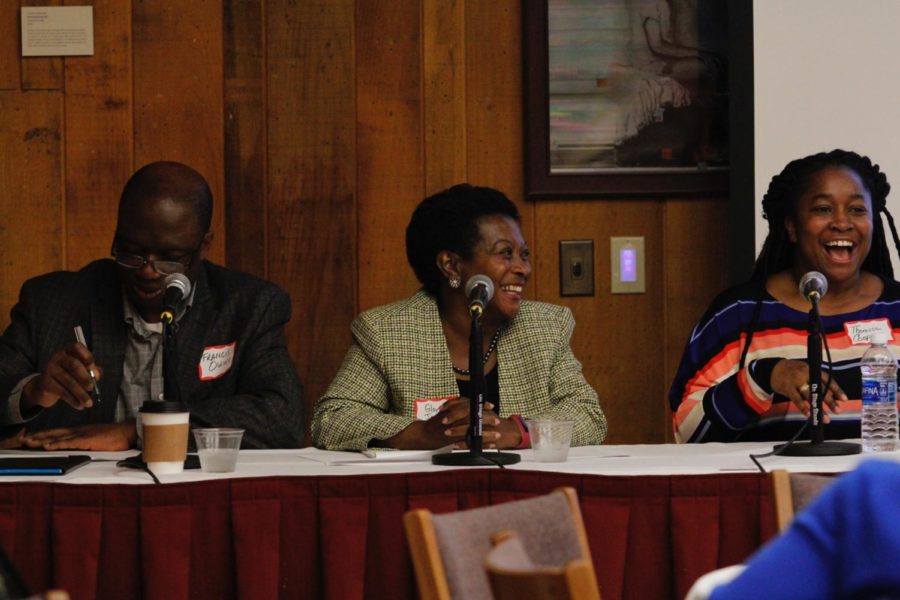Workshop provides advice for graduate students wanting administrative role
March 6, 2017
The idea of having a workshop series to help students of color find careers in academia was inspired by a group of African-American women who were having breakfast together sometime in January 2016.
“The women said that they should be doing something, working together to put something together,” said Tera Jordan, assistant professor of human development and family studies.
Jordan was also the co-investigator of the workshop, meaning she helped write the grant for the workshop.
The workshop, dubbed the Faculty of Color as Future Administrators Workshop, was hosted Monday afternoon in the Pioneer Room of the Memorial Union. This event was the fourth installment of a five-session series named Sustaining the Academic Pipeline.
The creators of the series decided to create a proposal to a grant created by the Women’s and Diversity Grant Program, a program orchestrated by Iowa State’s Office of Diversity and Inclusion.
The workshop began its course in September 2016. Monday’s panel focused on students of colors wanting to expand their scholastic career into an administration role in their respective fields.
The panelists included Gloria Jones-Johnson, professor of sociology; Francis Owusu, professor and chair of community and regional planning; Theressa Cooper, assistant dean for diversity in the College of Agriculture and Life Sciences.
Each panelist emphasized the importance of having mentors in their trajectory.
“I made sure I had strong mentors,” Cooper said. “They gave me the foundation I needed.”
Owusu shared the importance of having mentors, or just connections, with broad and diverse backgrounds.
When asked about the challenges of working in a predominantly white institution as a person of color, all three panelists acknowledged differences in point of view among themselves and their white coworkers, but the panelists had different experiences.
“I’m not going to pretend that the structure differs by race, gender, sexual orientation.” Jones-Johnson said.
She said she could see that her co-workers had different experiences in the workplace than she did.
“I often time forget that my path and trajectory was much different than my white encounters,” Jones-Johnson said.
For Cooper, her experience at Iowa State has been different. Cooper hasn’t had many issues within the College of Agriculture, as the people there have been very welcoming toward her. Cooper doesn’t believe she’s treated differently because of her race. She said people don’t believe her credentials because she appears to be too young.
“I come with this sense of credibility with a step up that someone else might not have,” Cooper said.
Cooper grew up around agriculture. By being a part of the college, Cooper found her biggest struggle to be people expecting her to be a representative of people of color, diversity and inclusion.
The panelists agreed on the importance of people knowing what they want to do, obtaining goals and participating in professional conferences.
“I do believe in the power of networking and building partnerships,” Cooper said.
Jones-Johnson hopes to become a future contributor in helping future scholars in general and of color. The panel will conclude with its final workshop on April 12 to discuss diversity in academia.







